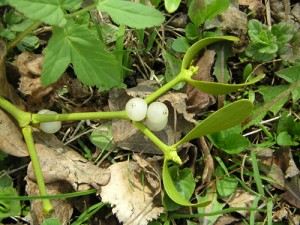
More evidence that low-calorie sweeteners are bad for your health
Studies show that artificial sweeteners can raise the risk of hypertension, metabolic syndrome, type 2 diabetes and heart disease, including stroke.

Natural Health News — Hypertension has been called a silent killer. It has almost no symptoms but can greatly increase the risk of heart failure.
The drugs we use to control it are not always effective and come with their own adverse effects ranging from exhaustion to kidney damage. So what to do?
A review in the November issue of the Journal of Clinical Hypertension suggests that natural remedies have a role to play.
According to hypertension expert Dr John Bisognano, professor of Medicine and director of Outpatient Cardiology at the University of Rochester Medical Center in New York, more and more, patients show up to appointments with their doctors with questions about natural products that they hope will help lower their blood pressure.
And like most physicians, he doesn’t always know if these products will do any good, or if they will cause any harm.
In an effort to better understand, Bisognano and his colleague Dr Kevin Woolf, a cardiology fellow at the Medical Center, conducted a comprehensive review of the evidence behind a wide range of non-drug interventions for the treatment of high blood pressure.
“Patients have different backgrounds and different approaches to living their lives,” said Woolf. “This is where the art of medicine comes in; getting to know patients and what they will and will not embrace can help physicians identify different therapies that suit their patients’ habits and that will hopefully make a difference for them.”
Woolf and Bisognano emphasise that as a first line in treating hypertension all patients with hypertension should adhere to the low-salt DASH diet, which is high in fibre, low in fats and incorporates plenty of fruits and vegetables, and follow an exercise and weight loss programme – recommendations that echo those made by doctors and heart associations around the world.
Any alternative options such as those below, they say, should be considered for use in addition to these lifestyle changes.
Dietary supplements
The shining star among supplements is coenzyme Q10, an enzyme involved in energy production that also acts as an antioxidant. Patients with hypertension tend to have lower levels of the enzyme, and a large ‘meta-analysis’ of all the available data found that treatment with coenzyme Q10 supplements significantly reduced blood pressure.
They also found that potassium helps lower blood pressure, and there is evidence that increasing the amount of potassium we get through the foods we eat could carry some of the same mild benefits as taking supplements.
Herbal Remedies
The potential herbal remedies identified include mistletoe extract, used in traditional Chinese medicine to treat hypertension. Mistletoe extract has been shown to reduce blood pressure in animal studies, though it may be toxic at high doses.
The extract from hawthorn is also useful but, say the authors, provides only a slight reduction in blood pressure.
The study cautions health care providers and patients that formulations can vary and that a handful of the remedies that they reviewed – St. John’s wort, ephedra/ma huang, yohimbine and liquorice – may increase blood pressure.
A qualified herbalist, giving individual attention, will know this and will be able to advise patients accordingly.
Acupuncture
Research on both practices is of mixed quality, say the authors – the types of patients included, the methods used, and the results, tend to vary from study to study.
While there is no conclusive evidence that either practice consistently lowers blood pressure, there is evidence that acupuncture reduces blood pressure compared to placebo in patients also taking anti-hypertensive medications, and in a meta-analysis transcendental meditation also appeared to lower blood pressure.
Other techniques that may provide some benefit include Zen Buddhist meditation and Qi Gong.
Devices
Some new devices – such as the RESPeRATE breathing device and the Zona Plus hand drip device – can be used by patients in the comfort of their own homes.
The RESPeRATE system uses a breath sensor and gives patients feedback through headphones to help them slow their breathing, which research suggests benefits blood pressure. If used 15 minutes a day, studies show RESPeRATE leads to a modest decrease in hypertension.
The Zona Plus is a device that patients grip in either hand and perform multiple sets of squeezing at different levels in response to electronic cues. The current review says there is no good explanation as to why this works, but studies found the device decreased hypertension in patients using it three days a week for at least eight weeks.
Patients can buy both devices for between £150 ($300) and £200 ($400).
It’s worth noting, however, that some therapies not investigated in the review, such as yoga, routinely involve breathing practices designed to slow and deepen breathing and these too may be useful in treating high blood pressure.
“Right now we’re seeing a cultural shift where an increasing number of people want to avoid standard pharmaceuticals,” said Bisognano.
“We’re also seeing a growing number of patients who require a large number of drugs to control their blood pressure and are looking for something else to help manage it.”
Many conventional doctors and medical institutions now recommend low impact approaches as a first line treatment for hypertension. Even the famous Mayo Clinic touts ‘10 Ways to Control High Blood Pressure Without Medication’ – though this list falls short of recommending natural therapies.
Overall this paper gives the sort of grudging thumbs up we’ve become used to from conventional medical professionals, but it also highlights the usefulness of a number of important therapies.
The doctors believe there is not enough data to recommend any of the alternative options surveyed on a routine basis, but on an individual basis he thinks they are useful.
Individually appropriate treatment, is of course, the mainstay of complementary and alternative medicine.

Please subscribe me to your newsletter mailing list. I have read the
privacy statement